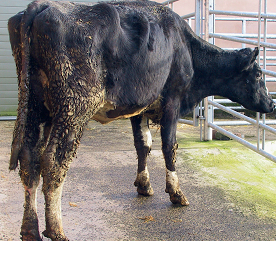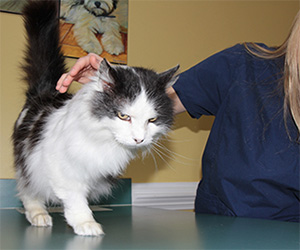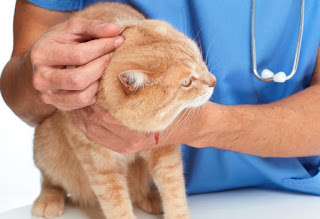Bovine virus diarrhea, a common illness among cattle throughout the United States, comes in several varieties like chronic, mild, or acute. The main transmission route is through direct contact or touching of other cattle that is ill, or with objects or surfaces that are contaminated. The mild type of BVD usually has no overt symptoms, but if there are any, it is commonly mild diarrhea, rapid breathing, nasal discharge, coughing, and fever. Cattle that have the milder type of BVD will be immune to future infections. As for the ones which have the acute BVD form, the typical symptoms are dehydration, diarrhea, weight loss, possible lameness, fever, breathing difficulties, and other respiratory issues. Cows that are pregnant in their initial trimester could abort. If BVD is contracted around the ninetieth to one hundred and twentieth day of the pregnancy, the unborn fetus could mummify. Should the infection happen at a later pregnancy stage, that fetus could be hairless, have brain damage, or have lungs that are underdeveloped. As for the chronic BVD cases, the signs are pretty much the same with the acute form but will include gradual weight gain, a rough hair coating, and lameness.
Check with your vet clinic Dallas, GA regarding the ideal ways to safeguard your cattle against BVD.






